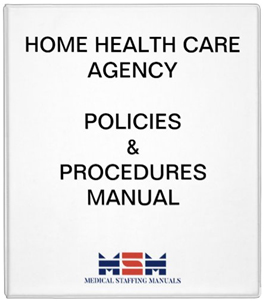Step-By-Step Guide To Getting A Home Health Care Business License
When you launch a home care business, there are a hundred things to accomplish, including obtaining a license. To safeguard the public and make sure they receive the best medical and nursing care, the US healthcare sector is subject to strict regulations. Therefore, your home healthcare agency must need a license before operating.
However, the licensing requirements and regulations to protect consumer rights vary from state to state. To provide non-medical services and/or skilled nursing services, a home healthcare business must have a valid license in most states across the USA. Therefore, you must familiarize yourself with state laws, the licensing procedure, the time it takes for approval, and the frequency of license renewals before applying for a home care license and starting your home health care business.
Currently, only four US states do not mandate a license to start and provide home care services:
· Michigan
· Massachusetts
· Iowa
· Ohio
The other states mandate a licensing inspection that is carried out by either state authorities or an accreditation agency. Here’s your step-by-step guide to arranging a few things before applying for a home care license to start your home healthcare business.
Research
Before beginning the procedure, it is important to research local state licensing fees and regulations. The cost of obtaining a home health care license is either fixed or determined by the number of employees.
Do you require a “certificate of need”
You might need a "Certificate of Need" depending on the services you plan to offer, such as Medicare and Medicaid. You must consult the relevant state department. However, if it turns out that you require one, you should first apply for the certificate before getting your license.
Secure an office location
Even if you work from home, you'll need to set up a secure workspace with locked filing cabinets for client and team records that comply with local zoning requirements. Your state can mandate that you open your office to public access and have workers on duty during regular business hours.
Create your business plan
It's worth writing a business plan when beginning a home health care firm even if you don't have to when you apply for a home care license.
Register with the Secretary of State
You must register your business with the State Department of Revenue Services and the Secretary of State. Most of the time, registering your business only requires submitting your business name to the state and local authorities.
Hire trained staff
Prior to submitting your licensing application, you must hire an Administrator, trained nursing staff, and a Director of Nursing. Your staff might need to submit to a background check, present their fingerprints, and undergo sporadic drug testing depending on the laws in your state. Background checks are strongly advised for the protection of your company, your employees, and your clients even if your state does not mandate them.
Obtain adequate insurance
It's crucial to buy adequate insurance. You'll need professional liability insurance at the very least, but you might also need general liability insurance. Consult your state authority in this matter.
Make sure you are prepared with compliance caregiver training and are aware of your state's licensing procedures before starting your home health care firm. A home healthcare business startup guide can be a great asset throughout the process of getting your home care licensing and setting up your operations in your state.
When you launch a home care business, there are a hundred things to accomplish, including obtaining a license. To safeguard the public and make sure they receive the best medical and nursing care, the US healthcare sector is subject to strict regulations. Therefore, your home healthcare agency must need a license before operating.
However, the licensing requirements and regulations to protect consumer rights vary from state to state. To provide non-medical services and/or skilled nursing services, a home healthcare business must have a valid license in most states across the USA. Therefore, you must familiarize yourself with state laws, the licensing procedure, the time it takes for approval, and the frequency of license renewals before applying for a home care license and starting your home health care business.
Currently, only four US states do not mandate a license to start and provide home care services:
· Michigan
· Massachusetts
· Iowa
· Ohio
The other states mandate a licensing inspection that is carried out by either state authorities or an accreditation agency. Here’s your step-by-step guide to arranging a few things before applying for a home care license to start your home healthcare business.
Research
Before beginning the procedure, it is important to research local state licensing fees and regulations. The cost of obtaining a home health care license is either fixed or determined by the number of employees.
Do you require a “certificate of need”
You might need a "Certificate of Need" depending on the services you plan to offer, such as Medicare and Medicaid. You must consult the relevant state department. However, if it turns out that you require one, you should first apply for the certificate before getting your license.
Secure an office location
Even if you work from home, you'll need to set up a secure workspace with locked filing cabinets for client and team records that comply with local zoning requirements. Your state can mandate that you open your office to public access and have workers on duty during regular business hours.
Create your business plan
It's worth writing a business plan when beginning a home health care firm even if you don't have to when you apply for a home care license.
Register with the Secretary of State
You must register your business with the State Department of Revenue Services and the Secretary of State. Most of the time, registering your business only requires submitting your business name to the state and local authorities.
Hire trained staff
Prior to submitting your licensing application, you must hire an Administrator, trained nursing staff, and a Director of Nursing. Your staff might need to submit to a background check, present their fingerprints, and undergo sporadic drug testing depending on the laws in your state. Background checks are strongly advised for the protection of your company, your employees, and your clients even if your state does not mandate them.
Obtain adequate insurance
It's crucial to buy adequate insurance. You'll need professional liability insurance at the very least, but you might also need general liability insurance. Consult your state authority in this matter.
Make sure you are prepared with compliance caregiver training and are aware of your state's licensing procedures before starting your home health care firm. A home healthcare business startup guide can be a great asset throughout the process of getting your home care licensing and setting up your operations in your state.



Comments
Post a Comment